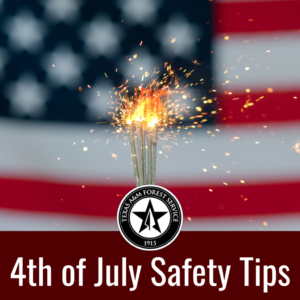
The Fourth of July is a time to celebrate with friends and family the vast opportunities our country has given us. While we reach the end of the COVID-19 pandemic, many Independence Day traditions and celebrations are a go, but that may not be the case everywhere. Be sure to check your local restrictions before hosting barbeques. If your state is fully opened and you plan to attend an event, be vigilant about your safety and that of your belongings. Here are a few other tips to help you get through the festivities.
WAYS TO STAY SAFE ON THE FOURTH OF JULY
-
Stay cool and hydrated especially in areas very hot!
July is one of the hottest times of the year and it’s easy to fall victim to sun or heat stroke. Stay cool by being a shade-seeker: bringing an umbrella with you, wearing a hat, or staying under the covered portion of a porch or patio. It’s equally as important to wear sunscreen as well as light and loose clothing.
Finally, don’t forget the water. Many times, we get caught up in festive food and drink options and forget to add in water. Aim for eight cups or more per day, depending on how hot it is outside or how much sweet or salty food you are consuming.
-
Consider the safety of your food
The heat not only has an impact on you but your food as well. Having a BBQ and thinking of throwing all the meat on one platter outside awaiting the grill? Think again. Keep raw meat and seafood cold until it’s ready to be cooked. Once it’s ready, keep it hot until it’s consumed, then put in the fridge once everyone is done, meaning, don’t let it sit out. Contaminated food or items that have sat out too long can lead to food poisoning of some sickness, like infection.
-
Be mindful at events
Summer and celebrations mean concerts, BBQs, and state or county fairs. But it’s important to always be aware of your surroundings. Don’t leave your food, bag, or belongings unattended, and if the event is happening at night, be sure to stick with a friend. Fireworks are prime for theft as they are loud with those watching focused on the show.
4. Prevent eye injury
Prevent Blindness Texas has declared June 28th through July 4th as Fireworks Safety Awareness Week. Fireworks can damage your eyes, too. Contusions and lacerations are the most frequent injuries to eyes, which include foreign bodies in the eye.
If you do encounter an eye emergency, follow these steps to save your sight.
In the event of an eye emergency:
- Do not rub the eye. Rubbing the eye may increase bleeding or make the injury worse.
- Do not attempt to rinse out the eye. This can be even more damaging than rubbing.
- Do not apply pressure to the eye itself. Holding or taping a foam cup or the bottom of a juice carton to the eye are just two tips. Protecting the eye from further contact with any item, including your hand, is the goal.
- Do not stop for medicine! Over-the-counter pain relievers will not do much to relieve pain. Aspirin (should never be given to children) and Ibuprofen can thin the blood and increase bleeding. Go to the emergency room at once – this is more important than stopping for a pain reliever.
- Do not apply ointment. Ointment, which may not be sterile, makes the area around the eye slippery and harder for the doctor to examine.
Overall, the best way to prevent eye or other injuries is to not play with fireworks and do not let your child play with fireworks, even if their friends are.






